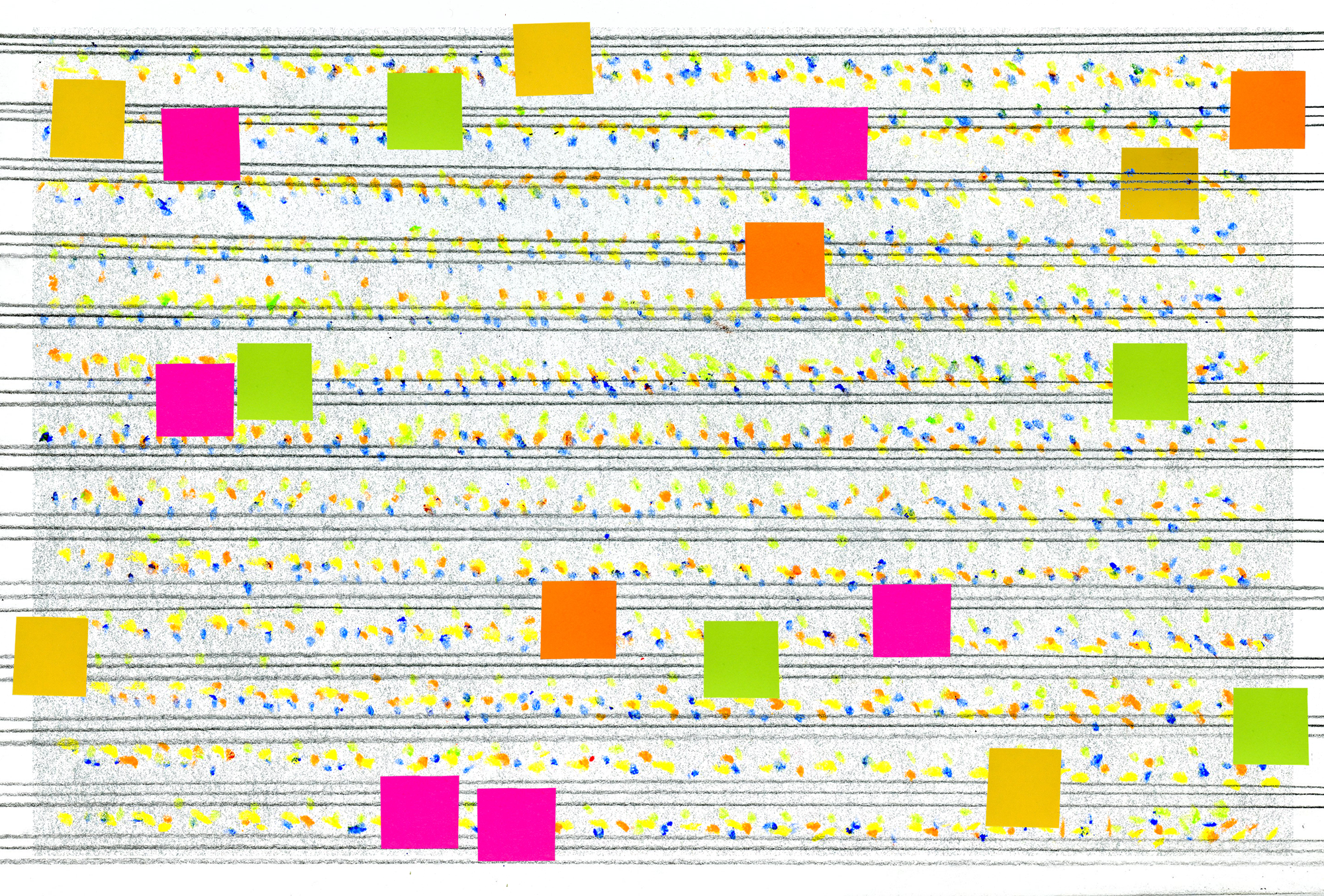How to make the leap to full-time poet
For 16 years, despite earning a poetry MA and having a decent track record of being paid for my published poems, I poured most of my energy into a day job as a national newspaper reporter. While bringing up my children, I enjoyed the diversion of journalism. I still scribbled my poems whenever and wherever I could, but while the reporting and parenting went on, my creative muse fell to the back of the queue. As time passed, I realized that refocusing on my poetry was essential to my happiness. I knew I had the skills and experience necessary to be a “professional poet”—someone making a living from writing, critiquing, and teaching poetry—I just wasn’t sure how to make the leap, practically speaking.
Last year, I felt like my prayers were answered when my company was restructured, and I got the chance to leave my position through a voluntary-redundancy offer. I finally left my staff job last October, and with just enough padding in my bank account, was ready to ease my way into life as a freelance poet. I was under no illusions, and knew that finding ways to make ends meet would be hard. What follows is my personal story, six months into life as a freelance poet—my successes, failures, and realized misconceptions around the idea of making a living from poetry alone.
Before I launch into things, it’s important to note that the field of poetry is currently booming in Britain (where I live), and that there are a number of paid opportunities here for poets. There are grants from the government’s Arts Council and the National Lottery, and competitions and paid reading slots are available across the country. Additionally, many people want to learn to read and write poetry, so myriad institutions now offer creative writing courses that need teachers and experienced tutors to facilitate. The UK’s thriving poetry scene and generous support for the arts means it is possible for me to earn a living as a working poet in 2019, but these types of opportunities may vary based on where you live, so it’s worth doing the research to understand your situation before you decide to make the leap yourself.
That said, I hope this guide might be useful for any person considering the daunting yet exciting leap from the safety of a salaried role into life as a freelance artist.
— Sarah Westcott
What to consider before making the leap to professional poet
Before attempting to pursue your poetry (or any creative passion) full-time, it’s a good idea to assess whether or not it’s the right time—especially if making the leap will require you to step away from the safety of a salaried job. This is not a decision to be taken lightly, and as you decide how to proceed, make sure to employ a blend of strategic and intuitive thinking.
Use strategic thinking regarding your finances. You are taking a calculated risk by leaving a role that generates reliable income, and must understand the importance of having some financial security built up for the precarious first few months of pursuing poetry as your main source of income.
Leaving my job when voluntary redundancy arose offered me two things: 1) it gave me the psychological push to make the leap, and 2) the pay-out gave me a financial cushion for those first few months when I still had to pay childcare bills and take care of other expenses. Money can (and probably will) come in slowly when you are just starting to work for yourself, so having some savings built up before you make the leap means you won’t need to worry about cashflow hold-ups as you’re just getting going.
Test the waters by lining up side projects while still at your current job. Before you make the leap, dip a toe into the market and see if you enjoy the freelance hustle—and if you have the contacts to pick up work. Doing this will also give you much-needed confidence in your abilities before you go. I picked up some work as a poet-in-residence in the months before I left my job, and the commission for that (£1,000) felt like a signal that I could perhaps make it solo.
Tune into your intuition, and follow your instincts. Listen to your creative self and understand when it is time to leap. Things came to a head for me a year ago when I realized I was miserable at work. I would spend every Sunday before I was due at the office fretting about what I would have to do the next week, unable to eat or sleep properly. Once at work, I would obsessively clock-watch, counting down the hours until I could escape.
What kept me at that job for so long? For one thing, I wanted to provide security for my family—and the safety net of a regular income gave me a worthy excuse to stay there for years. I had enjoyed my job once, but nearing middle-age, I had become a different person who had started to realize how short (and precious) life is. My intuition told me my day job was crushing my inner poet, and at a certain point, I couldn’t ignore that.
Talk to other people. Aside from making you feel better, you may find sharing your situation clarifies it—and that others will support you in moving on. Once redundancy was first mentioned, I told my line manager I was going to apply, and also talked to the managing editor. By making my intentions clear, my colleagues had time to adjust to the idea of me leaving. It also meant I was first in line to go, which made the whole process quicker and more painless. Talking honestly with others also meant that I left with open lines of communication and mutual respect, which has been useful down the line, as some of these connections have since commissioned me for freelance writing work.
Consider your domestic privileges and obligations. I am lucky to have a supportive partner who works full-time and brings in a regular salary as a journalist. With a mortgage and three kids to bring up, we had a long conversation on how to “safety-proof” our household income if I left my job. While he would have preferred me to stay in my role, he could see I was unhappy and we both agreed it was time to make the change. We also agreed it was essential for me to find a regular source of income once I made the leap. In making these decisions, it was vital that we approached the problem as a team.
In many ways, I was privileged to be able to make the leap to professional poet thanks to the security of my partner’s income. Research shows I am not alone in this situation—in fact, the majority of writers in the UK are subsidized by their partners, or by other sources of income such as a second job. New figures from the Authors’ Licensing and Collecting Society found that the average professional writer earns £10,000 a year, but the mean earnings for a writer’s household are more than £81,000 a year. Whatever your situation, it’s important to be aware of the role privilege plays in one’s ability to make it as a full-time poet, and plan accordingly.
If you have children or other dependents, consider how you will balance their needs, care, and expenses with your own creative work, and put a plan in place before you go. I budgeted for two days of childcare a week for my three-year-old at a cost of £300 a month, because without this childcare I knew I could not effectively work.
How to actually go about making a living as a poet
Find (and make your own) opportunities. As a freelancer of any kind, you are your own boss, publicist, and cheerleader. So while there may be tons of opportunities out there, unless you are a famous name, they will not fall into your lap. Instead, you must seek those opportunities out yourself, and convince the gatekeepers that your work will be worth including in their programming.
Creating your own opportunities is another matter—and something I am keen to focus on more myself. If you find that you’re not getting as many opportunities as you need through more passive applications (it is a competitive world out there, after all), it’s time to roll up your sleeves and create your own. This takes more time, research, and lateral thinking, but can pay off financially and creatively in the long run.
One way to create your own opportunities is to approach programmers directly. Festival organizers, for example, don’t usually have as much time as they’d like to plan events. Get proactive and approach them with a package of work you can offer—a reading and themed workshop, for example. I know a poet who has just finished a successful residency in a crematorium—because he got in contact with the manager on his own accord, he was able to spend six months there as a working poet, producing a collection of work which led to another lucrative commission.
Working out how much time to spend on speculative applications and pitches is crucial in your life as a jobbing poet. In my experience, I’ve found that I need to devote about half of my time to researching opportunities, pitching my work, and applying for commissions, residencies, grants, awards, and readings. Then I spend the other half of my time developing the creative work itself.
Build up your community. As you start out in the freelancer world, it’s very useful to build yourself a social network of other poets from whom you can find opportunities. Since I’ve developed my Twitter presence, I’ve found that I learn about many opportunities on that platform. It’s also fruitful to be generous by sharing opportunities with others when they come up. Also, don’t just network online—go to readings if you can and support other poets. You will soon build up a network that can help point you towards relevant and interesting opportunities. Editor’s note: for more tips on how to enter the poetry community, see this related Tips piece.
Track your finances, and set goals. As you pursue various opportunities, create a spreadsheet of financial projections and set goals for how much you’d like to earn from different pursuits, then manage your time accordingly. The simple but profound dictum of “time is money” is useful to remember—by all means, make the best possible pitch or application possible, but drop any perfectionistic tendencies. When you’re a freelancer, your time literally is money, as you are effectively paying yourself. If an application is finished, do not continue fiddling around with it—just fire it off!
Make sure you keep track of how much time you’re spending on applications or pitches versus the actual paid work itself. And don’t forget to give yourself precious space and time for your true creative work—which in my case, often takes a long time.
As I’ve been starting out, I set an initial and modest goal of earning at least £125 a week (£500 a month), which so far has proven to be a realistic goal for someone in their first year of pursuing poetry full-time. These meager earnings are doable for now, but I will need to keep increasing them in the future as I become more capable of generating freelance income.
My financial breakdown in year one of being a professional poet
So, how does making at least £500 a month break down in terms of translating work into actual income?
Income stream 1: Teaching. On a typical week, I might earn £75 for teaching one poetry class, sometimes £150 for two. In the first weeks, I put a lot of time into preparing my lessons, but I knew I could re-use them in the future and that my investment of time would pay off in the long run.
Income stream 2: Reviewing poetry. I regularly write paid reviews of recently published poetry collections for a website and a magazine. I am careful not to take on too much of this type of work, as it doesn’t pay well (around £60 per collection). Despite the poor rate, I like to keep this going as it’s good for my professional standing and informs my own work. I also feel like I am paying my respects to the community I am part of—every poet wants and needs their work thoughtfully considered.
Income stream 3: Publishing poetry. Getting your poetry published in magazines pays, but definitely not enough to live on. As such, this has proven to be the most satisfying but least predictable stream of income. I might receive £500 for writing one commissioned poem, and just £25 for another.
Income stream 4: Poetry readings. In my experience, reading fees (usually taken from ticket sales) tend to vary from £25 to £150. A successful poet I know recently received £500 for one reading—proving there are the funds out there to pay poets reasonable fees. While these reader’s fees are often small, taking part can help boost your visibility, lead to further reading opportunities, and generate book sales (if you have a book to sell). Selling eight of my books at a reading, for example, will generate £80 in income—and a lot of personal satisfaction. If you’re looking to promote yourself and your work, it’s worth contacting the organizers of readings or festivals and asking for a slot (remember, you are your own marketing department). You should also ask that your travel expenses be paid by the reading organizers. They may not be able to, but it is always worth asking.
Income stream 5: Mentoring. This involves being paid to look at other poets’ work and offer detailed and sensitive constructive criticism on how they might improve it. I undercharged for this in the early weeks and realized I was unintentionally undercutting others. Since then, I researched the market and have upped my rates to around £30 for an hour of my time, though the amount you might earn doing this type of work can vary widely. Again, social media and networking is useful here to market your services and share testimonials.
Income stream 6: Residencies and grants. There are many residencies and grants available in Britain for poets that can provide a valuable income stream and provide vital space and time to focus on your work. I recently applied for a week’s residency in Cornwall which pays a stipend of around £100 a day, which is a fairly typical amount. I also spent a month in a nature reserve as part of a residency program, which paid £1,000. The Society of Authors offer an annual package of grants to writers that range between £3,000 and £5,000. Arts Council England’s new Developing Your Creative Practice fund offers grants between £2,000 and £10,000 a year. Prizes in poetry competitions can be another income stream, too—but of course making money this ways depends on the taste of the judges, and involves a strong element of luck.
On using failure productively
If all this sounds like smooth sailing, know that it’s not! As a professional poet, rejection is a constant—I would estimate that only 25% or so of my efforts to solicit opportunities have paid off.
As you make the leap to professional poet, building resilience and not taking rejection personally is vital. Try to use rejection to your advantage. Upon finding out I did not receive a favorable response to a pitch or application, I usually feel a twinge of disappointment, but I’ve learned to simply return to my next project, determined to give it my best shot. It’s also a good idea to ask kindly for feedback about why you weren’t given an opportunity, and if you receive notes on your application, try to put it to use.
As you continue to apply for opportunities, always keep your CVs and personal statements up to date and on file, then tailor them to suit each unique application. I believe the process of pitching is creative in itself—it strengthens and builds creative reserves through lateral thinking, and helps you articulate what is unique about you and your work.
For any poet, the balance between success and failure will always be movable and dynamic. We all need something to push against, and if success fell into our laps, we would have nothing to strive for. As you get started, do not be hard on yourself if you don’t meet your financial projections right away. So far, despite many setbacks, I have found that the weeks seem to balance themselves out as long as I continue to seek and generate new work. Additionally, the excitement of waiting to hear back is one of the more unexpected rewards of working this way. At the time of writing this, I have nine poems sent out to different competitions and journals, one grant application in progress, and a pending residency application. I am a perennially hopeful person and feel that at least one of these opportunities will come through. If they don’t, I will seek out more opportunities and move on.
On protecting your creative space
As you make the leap to pursue your creative passion full-time, setting up boundaries between paid work and your own creative practice is essential. Finding a healthy way to separate the two will enable you to respect each as a vital facet of your life, and then give them each the focus they deserve.
Six months into being a professional poet, I am getting better at juggling creative and commercial tensions, but I have definitely found it difficult to navigate between the two. What has helped me is having a professional workspace (a table in the spare room) where my laptop and papers “belong.” I turn up there to work, and immediately feel more business-like in my endeavors. The surprising fact, perhaps, is I have come to enjoy being there, and working for myself. However, do be aware of the cult of productivity, and don’t put in hours without first giving some thought to what the most constructive use of your time will be. When you work for yourself, no one is going to give you a gold star simply for showing up!
Equally important is demonetizing your precious creative space. Unlike the space I work in while pursuing paid work, my personal work takes place in a far more nebulous and fluid space (I suppose you could say it happens within my brain). If I have a heavy “admin load” that does not require a lot of brain-power, I will make space to do it in the evenings, and save time during the day for my creative work, when my mind feels fresher. When I’m ready to work on my poems, I put the computer and all my admin work away, out of sight. Then, I usually write long-hand into notebooks, spend time observing and thinking (often outside), and put pen to paper as soon as inspiration strikes.
While the physical and psychological structuring of my work world has helped, just as important is making sure I have time and space to just write/daydream/look at the sky without any known outcome. For me, and for most artists, it’s important to preserve a place where sparks of creation can (and must) begin.
On future-proofing yourself by adding to your skill-set
Consider taking on a manageable but lucrative side hustle. As you make the leap to full-time poet, it is wise to consider developing a “side-hustle” that can bring in some regular cash, but that won’t detract too much from your creative work. One poet friend of mine works in a bookshop, and another is a part-time library assistant. I started paid teaching work two months after I left my job in journalism. Through teaching, I have made useful contacts, and it has fed into my self-esteem as a “real” poet who can help others understand the power of language. Two years ago, I would have been afraid of teaching and being seen as an “expert,” but now this fear is gone.
Additionally, as a side-hustle, teaching has fed into my own work (teaching the sonnet, for example, unexpectedly reignited my own experiments with poetic form and meter). However, I have had to be very careful that this remains a side-hustle and does not leach into my creative time. This is a balancing act which I hope will get easier as my teaching preparation time reduces.
Before leaving your current job, take advantage of any offered benefits
If you are currently employed, try to harness any perks or benefits in your employment package to help you transition into your new role. When I took my voluntary redundancy payout and left my job, part of my package was a £3,000 re-training allowance to be spent within six months of leaving. Because of this, I was able to sign up for a Post Graduate Certificate in Teaching Creative Writing at Cambridge University—a course which I would otherwise not have been able to afford, but which is already paying dividends.
Even once you leave your job, you can continue to leverage your professional network of contacts. People love to know others’ news, so drop your colleagues an email and let them know you’re open to commissions. Even if these contacts don’t have work for you themselves, they can be additional eyes and ears who can send opportunities your way as they arise.
In summary…
Six months in, being a professional poet is a work-in-progress. I have a newfound sense of control over my own life, which I did not feel working for a profit-driven media company. Sometimes I have fallow weeks, other times the work and poems flow. Keeping my ears, eyes, and heart open to opportunities is a priority, as is remaining on top of my finances.
After this transition, I am financially poorer but more creatively and professionally fulfilled than ever. This is a leap I have never regretted making, and one I believe every creative independent can take with sufficient forethought, self-belief, and drive. There are so many ways of being a successful “pro-poet”—the role is yours to sculpt to your liking. Good luck, fellow scribes, and keep the faith in your unique work.
Sarah Westcott is a London-based poet, writer, and tutor. Her first collection Slant Light was published by Pavilion Poetry in 2016. A poem from the book was Highly Commended in the 2017 Forward Prizes. Her pamphlet Inklings was a Poetry Book Society choice in 2013. Sarah’s poems have appeared in magazines including Poetry Review, POEM, and Magma, on beermats, billboards, and the side of buses, and in anthologies including Best British Poetry and The Forward Book of Poetry. Sarah holds a science degree and an MA in poetry.





